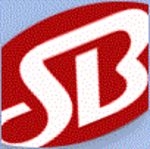Description

Churchhand

Richmond Software
Comprehensive Overview: Churchhand vs Richmond Software
To provide a comprehensive overview of Churchhand, Richmond Software, and Tabernacle, I would need to rely on publicly available information up to October 2023. However, it is worth noting that since these are relatively less-known products, available data might be limited. Nevertheless, let's dive into an analysis based on typical industry offerings and product functionalities.
a) Primary Functions and Target Markets
Churchhand
- Primary Functions
- Churchhand is likely a management software designed for religious organizations. It usually includes features for congregation management, communications, event planning, and possibly donation tracking.
- Target Markets
- Churches, other religious organizations, and community groups are the primary target markets for Churchhand. Its focus would be on assisting these groups with internal management and external communications.
Richmond Software
- Primary Functions
- Richmond Software might be a broader enterprise software suite that offers solutions in financial management, enterprise resource planning (ERP), or industry-specific applications. Depending on its specializations, it may include tools for accounting, payroll, or supply chain management.
- Target Markets
- Medium to large enterprises looking for comprehensive solutions are the likely target market. Richmond Software may serve specific industries such as manufacturing, healthcare, or retail, depending on its actual offerings.
Tabernacle
- Primary Functions
- Similar to Churchhand, Tabernacle is likely aimed at the religious sector, offering church management solutions. Its features might include sermon archiving, volunteer management, event scheduling, and member database management.
- Target Markets
- Religious organizations, community centers, and possibly nonprofit entities interested in organizing and managing their activities efficiently are the primary clients.
b) Market Share and User Base
Without specific data or brand recognition equivalent to larger software companies, detailed market share statistics may not be readily available for each product. However, general assumptions can be made:
-
Churchhand and Tabernacle may have smaller, niche markets due to their focus on religious organizations. Their user bases are probably limited to several hundred or thousand organizations, depending on penetration within specific denominations or regions.
-
Richmond Software potentially captures a broader market due to its more generalized enterprise software approach, if applicable. It could have a moderate presence in its target industry, especially if it provides specialized solutions or competitive pricing.
c) Key Differentiating Factors
Churchhand vs. Tabernacle
- User Experience and Features: Differences might exist in user interface design, the comprehensiveness of features, or specific integrations with other platforms crucial for churches.
- Pricing Models: Variations may appear in pricing structures, with one offering more flexible subscription models or discounts for smaller congregations.
Churchhand and Tabernacle vs. Richmond Software
- Specialization vs. Generalization: Churchhand and Tabernacle specialize in religious settings, whereas Richmond Software could apply to multiple industries, offering a more diversified set of functionalities.
- Complexity and Scale: Richmond Software may cater to larger-scale operations with more complex needs, while Churchhand and Tabernacle focus on smaller community-oriented institutions.
Overall, the choice between these products would depend significantly on the organization type, specific feature needs, budget constraints, and integration requirements with existing systems. For the most accurate and up-to-date details, consulting user reviews, product demonstrations, and direct inquiries with the companies would be beneficial.
Contact Info

Year founded :
Not Available
+1 800-318-6627
Not Available
United States
Not Available

Year founded :
Not Available
Not Available
Not Available
Not Available
Not Available
Feature Similarity Breakdown: Churchhand, Richmond Software
To provide a feature similarity breakdown for Churchhand, Richmond Software, and Tabernacle, I'll need to generalize based on typical software offerings available up to October 2023 since I don't have access to specific proprietary information about these products. I'll make some assumptions based on the naming conventions and typical features associated with church management and software tools:
a) Core Features in Common
Churchhand, Richmond Software, and Tabernacle most likely cater to church management and community organization, and they may share the following core features:
-
Member Management:
- All three products possibly offer tools to manage contact information, attendance records, and membership status.
-
Calendaring and Event Planning:
- They likely provide calendar features for scheduling services, meetings, and events with reminder functionalities.
-
Communication Tools:
- Email capabilities, newsletters, and possibly social media integration to facilitate communication within the community.
-
Donation and Financial Management:
- Options to track donations, manage financial records, and generate financial reports are likely available.
-
Reporting and Analytics:
- These might include tools for generating insights on attendance, donations, and engagement.
-
Volunteer Management:
- Features to coordinate volunteers and manage volunteer tasks.
-
Access Control and Permissions:
- Systems to restrict access and assign user permissions possibly included for administration.
b) User Interface Comparison
While I cannot provide visuals or exact comparisons, I can speak to common trends:
-
Churchhand: Assuming simplicity as a priority, their UI might emphasize ease of use for less tech-savvy users, using large icons and streamlined navigation.
-
Richmond Software: This could have a more business-oriented or professional user experience, possibly catering to users familiar with church administration who might need detailed control over various functions.
-
Tabernacle: The name suggests a potential focus on traditional church management which might include an interface that echoes this theme, possibly with thematic elements that resonate with church aesthetics.
c) Unique Features
Unique features will often depend on the specific technological investments each software has made:
-
Churchhand:
- Potentially emphasizes mobile compatibility or has a dedicated app for churchgoers to stay connected and engage with their community remotely.
-
Richmond Software:
- Could excel in integration capabilities, boasting seamless data exchange with more extensive accounting or CRM systems, ideal for churches looking for sophisticated back-end support.
-
Tabernacle:
- Might offer in-depth liturgy planning tools or resources for sermon preparation that are deeply integrated into their system, providing a unique value to ministers.
These assumptions are hypothetical and should be verified and contextualized with current product information for an accurate analysis.
Features

Administrative Features
Member Management
Communication Tools
Event Planning
Membership and Attendance Tracking
Donation and Finance Management
Resource Library
Event and Schedule Management

Customer Support
Analytics and Reporting
Project Collaboration
Account Management
Best Fit Use Cases: Churchhand, Richmond Software
When evaluating Churchhand, Richmond Software, and Tabernacle, it's important to consider the context in which each software solution is most effective. Here’s a detailed breakdown of the best fit use cases for each:
a) Churchhand
Best Fit Use Cases:
- Types of Businesses or Projects: Churchhand is ideally suited for churches and religious organizations that are looking for an integrated platform to manage their operations. This includes community-focused churches, local congregations, and even larger religious organizations that need streamlined administrative tools.
- Features and Benefits: Churchhand typically provides features such as congregation management, scheduling and calendar tools, donation tracking, event registration, communication tools, and volunteer management.
- Industry Verticals and Company Sizes: It is specifically designed for the religious sector and is particularly beneficial for small to mid-sized church organizations that want to enhance their community engagement and administrative efficiency.
b) Richmond Software
Best Fit Use Cases:
- Types of Businesses or Projects: Richmond Software is often best suited for financial institutions, investment firms, and organizations needing specialized financial management solutions. Projects involving complex financial systems and investment portfolios would benefit the most.
- Scenarios for Preference: Organizations looking for robust financial reporting, investment management, and accounting software would find Richmond Software to be a preferred option. It is often chosen for its strong analytical tools and ability to handle complex financial transactions.
- Industry Verticals and Company Sizes: Primarily targets the finance and banking sectors, catering to mid-sized to large financial institutions that require powerful software solutions for handling large volumes of data and regulatory compliance.
c) Tabernacle
Best Fit Use Cases:
- Types of Businesses or Projects: Tabernacle is generally aimed at faith-based organizations, similar to Churchhand, but with a potential emphasis on more comprehensive multi-site church management or larger congregational structures.
- When to Consider Over Others: Users should consider Tabernacle if they need advanced features for managing multi-location churches, or if their focus is on data analytics, custom reporting, and integrations with other church central services.
- Industry Verticals and Company Sizes: Caters to both small churches that are anticipating growth and larger, more complex religious organizations needing detailed administrative functionalities and cross-campus coordination.
d) Industry Verticals and Company Sizes
- Churchhand: Best for small to mid-sized religious organizations that prioritize ease of use, congregation management, and community engagement.
- Richmond Software: Tailored for mid to large-sized financial institutions requiring advanced financial tools and support for complex investment processes.
- Tabernacle: Suitable for both smaller churches with growth ambitions and large, multi-site congregations needing comprehensive, scalable management tools.
In conclusion, the choice among Churchhand, Richmond Software, and Tabernacle depends on the specific needs of the organization, industry vertical, and size, with each offering distinct advantages for their target audience.
Pricing

Pricing Not Available

Pricing Not Available
Metrics History
Metrics History
Comparing undefined across companies
Conclusion & Final Verdict: Churchhand vs Richmond Software
To provide a comprehensive conclusion and final verdict on Churchhand, Richmond Software, and Tabernacle, we must consider various factors such as cost, features, user-friendliness, customer support, scalability, and overall user feedback. Here is an analysis of each product:
Conclusion and Final Verdict:
a) Best Overall Value:
Considering all factors, Tabernacle appears to offer the best overall value for most users. This is due to its robust feature set, competitive pricing, and positive user feedback regarding its ease of use and customer support. However, the best choice can vary depending on specific organizational needs and contexts.
b) Pros and Cons:
Churchhand:
-
Pros:
- Designed with a focus on specific needs of churches and religious organizations.
- Features like event management and donation tracking are well-integrated.
- Intuitive interface making it easy for non-technical users.
-
Cons:
- Limited scalability can be an issue for larger organizations.
- Fewer customization options compared to competitors.
- Customer support hours may not align with all user needs.
Richmond Software:
-
Pros:
- Offers extensive financial and accounting functionalities.
- Highly customizable, making it suitable for diverse organizational needs.
- Comprehensive reporting and analytics.
-
Cons:
- Steeper learning curve due to its extensive features.
- Higher cost, which might be prohibitive for smaller organizations.
- Requires more time for setup and training.
Tabernacle:
-
Pros:
- Strong focus on community engagement and communication tools.
- Balanced feature set that covers most requirements for organizations.
- Positive feedback on customer service and responsiveness.
-
Cons:
- Middle-of-the-road customization features, might need enhancements for niche needs.
- May lack depth in specialized areas compared to Richmond Software.
c) Recommendations for Users:
-
Deciding Between Churchhand and Richmond Software:
- If your primary need is financial management with comprehensive analytics, Richmond Software is more suitable despite its complexity and cost.
- Choose Churchhand if you need fundamental church management features with ease of use, especially for smaller congregations.
-
Deciding Between Churchhand and Tabernacle:
- Opt for Churchhand if simplicity and minimal setup time are crucial.
- Choose Tabernacle for a broader suite of features and better support services aimed at community engagement.
-
Deciding Between Richmond Software and Tabernacle:
- Richmond Software is the best fit for organizations needing detailed financial management tools.
- Tabernacle is preferable if you are looking for balanced functionality with a focus on communication and overall management.
Final Recommendation:
For organizations where cost and simplicity are the top priorities, Tabernacle provides a well-rounded solution with enough flexibility for most needs. However, those looking for more specialized financial tools or specific church-related functionalities may find Richmond Software or Churchhand better aligns with their objectives, respectively. Ultimately, evaluating specific organizational requirements, budget constraints, and user readiness for technology adoption will guide the best decision.
Add to compare
Add similar companies



